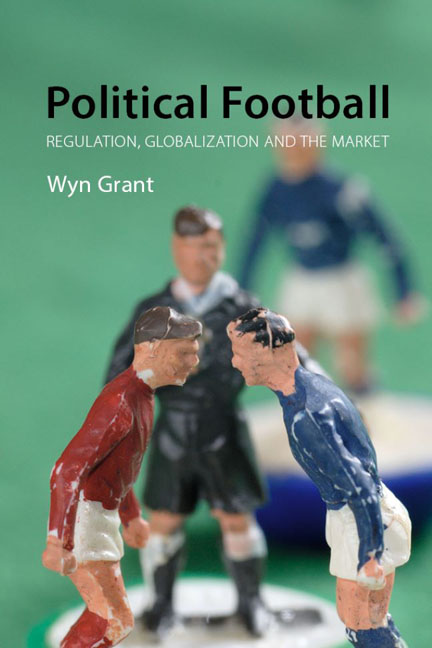7 - Regulating football
Published online by Cambridge University Press: 20 December 2023
Summary
As the preceding chapters may have suggested, the regulation of football is not very effective. Football has largely regulated itself, reflecting the extent to which it is a closed policy community with its own norms, values and largely unchallenged assumptions. It sees itself as a special world that can isolate itself from wider societal trends with external interventions regarded as unwanted and inappropriate. “In a country obsessed with football” (Cameron 2019: 571), politicians are often willing to tolerate this distinctiveness if they can bask in the reflected glory of success by national and club teams and pretend that they are “one of the lads” by supporting a particular team. This can, of course, lead to mistakes. David Cameron insisted that he was an Aston Villa fan, but mistakenly identified himself as a West Ham supporter in the 2015 general election campaign (Cameron 2019: 571–2). This led to social media jokes about “West Ham Villa” and “Aston United”. Politicians also appreciate hospitality offered at big matches. This combination of internal self-satisfaction, cosy relationships and external benign neglect has meant that in general the governance of football is inadequate at a national and international level.
Government and legislative interventions have been largely ad hoc with calls for the game “to get its own house in order”. It rarely does and no systematic pressure is placed on it to do so. The EU did start to use its capacity and mission as a regulatory state at one stage, but this faded with personnel changes and the arrival of new and more pressing challenges. FIFA has been beset by problems of corruption, while UEFA has been unable to put in place an FFP system that can withstand legal challenges. At a national level, the FA has been seen as ineffective and conservative while the EFL seems unable to deal with “rogue owners”. The US commissioner and franchise system centralizes control in a way that means a lot depends on the probity and good judgement of the person in charge.
- Type
- Chapter
- Information
- Political FootballRegulation, Globalization and the Market, pp. 125 - 144Publisher: Agenda PublishingPrint publication year: 2021

